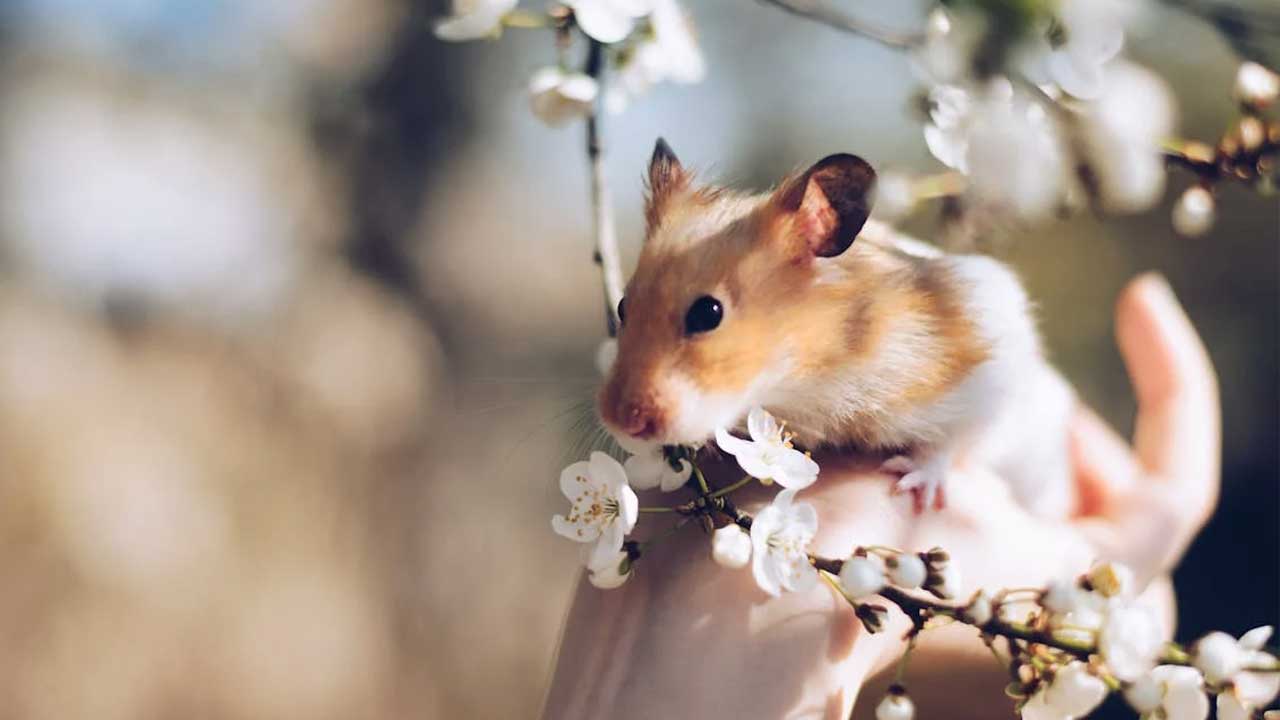What do you need to care for a Chinese hamster? In the following post, you will find everything you need to take care of your Chinese hamster, cage and accessories, food… Everything for your rodent.
- Name: Cricetulus barabensis
- Origin: Northeast China and Mongolia
- Life expectancy: 2 – 3 years
- Weight: from 17 to 31 gr
- Size: 8 to 13 cm long
Also known as a dwarf hamster, this friendly rodent is one of the most popular pets among families due to its small size and easy care.
They are native to the deserts of Mongolia and China and, as with other rodent species, Chinese hamsters were used as laboratory animals until the early 1920s, when they were replaced by rats and mice and domestic use began.
The life expectancy of these little animals does not exceed 3 years and their friendly nature makes them perfect for boys and girls over 6 years old to start with their first pet.
If you are thinking about adding one to the family or want more information to take care of yours, in this post we are going to tell you everything you need to know to care for them.
Recommendations for caring for Chinese hamsters
Caring for Chinese hamsters is quite simple and does not differ much from other rodents. Despite this, during the first days in a new home, your small rodent will need a period of adaptation in which you will have to pay special attention and give it all the care it requires.
Cage
It will be essential that your Chinese hamster is comfortable and develops correctly. To do this, their cage must have minimum dimensions of 30 x 20 x 18 cm, and also, as they are very playful animals, and they love to investigate, jump and climb, they prefer double-story cages.
If you have more space, your hamster’s cage should have two heights so that it has more surface area to move and, of course, that it has a wheel on which it can run to stay in shape and exercise.
Remember that the bars of the cage should always be horizontal since rodents love to climb on them.
Accessories for your Chinese Hamster
Cottage
Chinese hamsters love to hide, so we recommend that you look for a cage with a house included or add it to the one you already have.
For it to make its nests, you must add natural cotton hay or cellulose inside that house.
Add to your cage a water bowl of at least 50 cc and a feeder in which to add its food.
You should check from time to time that your pet has enough water and food.
Toys
Your little friend will spend most of his time inside the cage, so don’t hesitate to add small rodent toys to make him move.
If you want to have all the basics to start caring for your Chinese hamster, you can start with this starter pack that includes the standard-size cage, food, bars, bedding, feeder, and a waterer.
Needs of Chinese hamsters
Although Chinese hamsters do not require as much attention as other types of domestic animals, they do need a series of basic care.
Cleaning and hygiene
It is important that the cage where you place your Chinese hamster has enough space to play and is clean.
To do this, once a week you should change the vegetable base (straw or hay), rub the bars, and clean the entire surface and toys with a scouring pad soaked in warm water and neutral soap.
To keep your hamster’s cage clean, we recommend that you use organic bedding that raises a little dust. This way you will avoid odors caused by excrement and your hamster will be in a better mood.
In addition, you should keep an eye on the water and food and change them periodically so that they always have fresh water to drink and food in good condition.
Feeding Chinese Hamsters
In the wild, this type of hamster mainly eats seeds and grasses, although it can sometimes also feed on small insects.
However, domestic Chinese hamsters are fed rodent feed prepared exclusively for them, which will provide them with the necessary nutrients for their proper development.
In addition, they can also eat fresh foods such as broccoli or vegetables.
If you want to treat your hamster from time to time, there are also bars, snacks, or “candies” that he will surely love. Of course, do not make them a regular part of your diet or it could cause health problems.
There are also a series of food supplements for rodents that will keep their health in good shape, such as calcium blocks that will help reinforce the health of their bones and also prevent excessive growth of their incisors.






